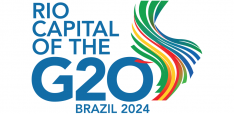Book Review - Liberalism and the Challenge of Climate Change

Liberalism and the Challenge of Climate Change by Christopher Shaw. Abingdon and New York: Routledge 2024. 148 pp., £135 hardcover 9781138615045, £36.99 paperback 9781138615069, £33.29 paperback 9780429463488
How we make sense of climate change, and the range of possibilities we have to address it, has been determined for us by liberalism, the dominant ideology of our time. In his excellent new book, Christopher Shaw examines the shibboleths of the liberal climate change regime. His bleak conclusion - that liberalism has got us into a climate crisis for which it has no solutions - is painful to acknowledge. It will nevertheless feel intuitively correct to many, surveying the inexorable rise in emissions over the last three decades, or the dismal trickle of compensatory finance flowing to poor countries as they are battered by climate impacts.
Borrowing from climate risk literature the concept of ‘guardrails’ - the ecological limits which threaten humanity if breached - Shaw identifies five ‘guardrails’ governing liberal climate discourse, delineating the space within which climate change can be addressed, without threatening the dominance of liberalism. The book is structured around Shaw’s critical analysis of these guardrails, which constitute liberal beliefs about the epistemology and historicity of climate change, the role of technological and narrative solutions, and the primacy of individualism.
 One such guardrail is the assertion that the liberal understanding of climate change is true, always and everywhere. This claim confers legitimacy and authority on the international climate regime, the United Nations Framework Convention on Climate Change (UNFCCC). In 2015, in the most feted achievement in the UNFCCC’s history, an agreement was struck to limit the global average temperature rise to 2°C and to try to keep it below 1.5°C, to prevent dangerous climate change. Shaw points out that these totemic global goals conceal an uncomfortable truth: different places are warming at different rates, with vastly different impacts on the ground, and huge variations in the ability of societies to cope.
One such guardrail is the assertion that the liberal understanding of climate change is true, always and everywhere. This claim confers legitimacy and authority on the international climate regime, the United Nations Framework Convention on Climate Change (UNFCCC). In 2015, in the most feted achievement in the UNFCCC’s history, an agreement was struck to limit the global average temperature rise to 2°C and to try to keep it below 1.5°C, to prevent dangerous climate change. Shaw points out that these totemic global goals conceal an uncomfortable truth: different places are warming at different rates, with vastly different impacts on the ground, and huge variations in the ability of societies to cope.
At around 1.2°C of warming, climate change is already meting out death and destruction at an accelerating rate. To take but one example, flooding in Pakistan in 2022 destroyed 1.7 million homes and killed nearly 1500 people. Shaw forces us to confront awkward questions. On what basis are we considering 1.5°C or 2°C to be safe or acceptable levels of warming? Safe or acceptable for who? Surely if warming the planet is dangerous to any of its inhabitants, we should cease all activity that causes warming immediately? As Ajay Singh Chaudhary argues, we’re not in this together.
That we continue to pump out planet-warming emissions as if there were no tomorrow reflects today’s dominant economic ethos, which lies at the heart of free-market liberalism. This approach, which Shaw wryly characterises as ‘what can I get away with?’ (p118) encourages ‘net zero’ emissions deadlines decades in the future. The ‘economically optimal’ approaches to climate change envisaged by the Integrated Assessment Models (IAMS) of the Intergovernmental Panel on Climate Change (IPCC) are often heavily back-loaded with untested technological solutions, which provide an elegant solution on paper but are likely to be highly problematic in practice.
This brings us to another guardrail: the promise that technology will solve climate change. Shaw contends that far from being our saviour, technology has progressively stripped us of our ability to reason, while leaving us helplessly dependent on it for our future survival. He explains this decline with reference to Max Weber’s concepts of value rationality, which is concerned with choosing the goals to which society is geared, and instrumental rationality, which is concerned with the most efficient means of achieving a predetermined goal. Under liberalism, which orients society towards the instrumentally rational pursuit of material prosperity, we have come to consider technology as synonymous with progress. The notion that progress should consist in the transition towards a fairer and more moral world, despite being commonly held before the Industrial Revolution, has been sidelined.
With climate change, we are being forced to confront the consequences of this reorientation. However, we cannot now abandon our machines, even if we wanted to: only they can solve the problem they have created. And so many billions are ploughed into moonshot solutions to climate change, leaving corporate structures, political orders and economic paradigms intact.
If liberalism isn’t able to save us, what about the alternatives? Shaw is unequivocal: there is no prospect of an alternative framework emerging, certainly not in time. That would require collective action, and under the current economic model, most of us have neither the time, nor the energy, nor the inclination to pursue such lofty goals as societal transformation.
In the free time we do have, we are guided by the trillion dollar advertising industry towards carrying out our real function under liberal economics - consuming. It is in this domain, as consumers, that we feel we are able to exercise agency, in a world where the possibility of achieving meaningful change by political means seems hopelessly remote. Shaw argues that in this politically impoverished context, the freedom to consume has taken on a special importance, and that anything seen to threaten this ‘last vestige of control and meaning’ (p116) is likely to meet strong opposition. We see this today in the fierce resistance encountered by any politician brave (or foolish) enough to propose measures which might limit the consumption of high-carbon activities or products.
Shaw laments that, for all the talk of ‘radical change’ and ‘systemic transformation’, the alternative future called for by the liberal climate mainstream looks remarkably like the present, just with fewer emissions. The book argues that the universalising, all-encompassing impetus of liberalism has constrained our imaginative horizons to such an extent that we cannot even imagine a future in which things are done genuinely differently; that, to paraphrase Frederic Jameson, it has become easier to imagine the end of the world than the end of liberalism.
One might reasonably challenge Shaw on this point. Positive, radical visions are being articulated, but they are usually snuffed out - deemed too reckless, too utopian, too expensive - or simply lost in the noise of the attention economy, long before making a dent in popular consciousness, let alone catalysing new political coalitions. This is not to understate the challenge, which remains huge and possibly insurmountable, but I would characterise it as more practical than cognitive. In 2024, with liberalism facing multiple overlapping crises, alternatives are being proposed - albeit mainly of the reactionary variety, with little prospect of solving our many problems, climate change included. But their existence surely points to a window of opportunity.
Considering the gloomy prognosis of the book, it is a remarkably motivating read. Shaw looks beyond treating the individual symptoms of climate change, towards a more holistic diagnosis of the sickness, convincingly explaining how different characteristics of the system we inhabit are making us ill. His analysis, which is clear without being reductive, equips us with the critical skills needed to recognise inadequate remedies and determine where efforts should be most effectively channelled. In setting out the radical insufficiencies of the status quo, this book crystallises what is needed. This clarity can be harnessed to nurture and sharpen creative visions of a climate-secure future amounting to more than a low-carbon replica of today’s brutal world.
Chris Aylett is a Research Associate in the Environment and Society Centre at the Royal Institute of International Affairs, Chatham House.

